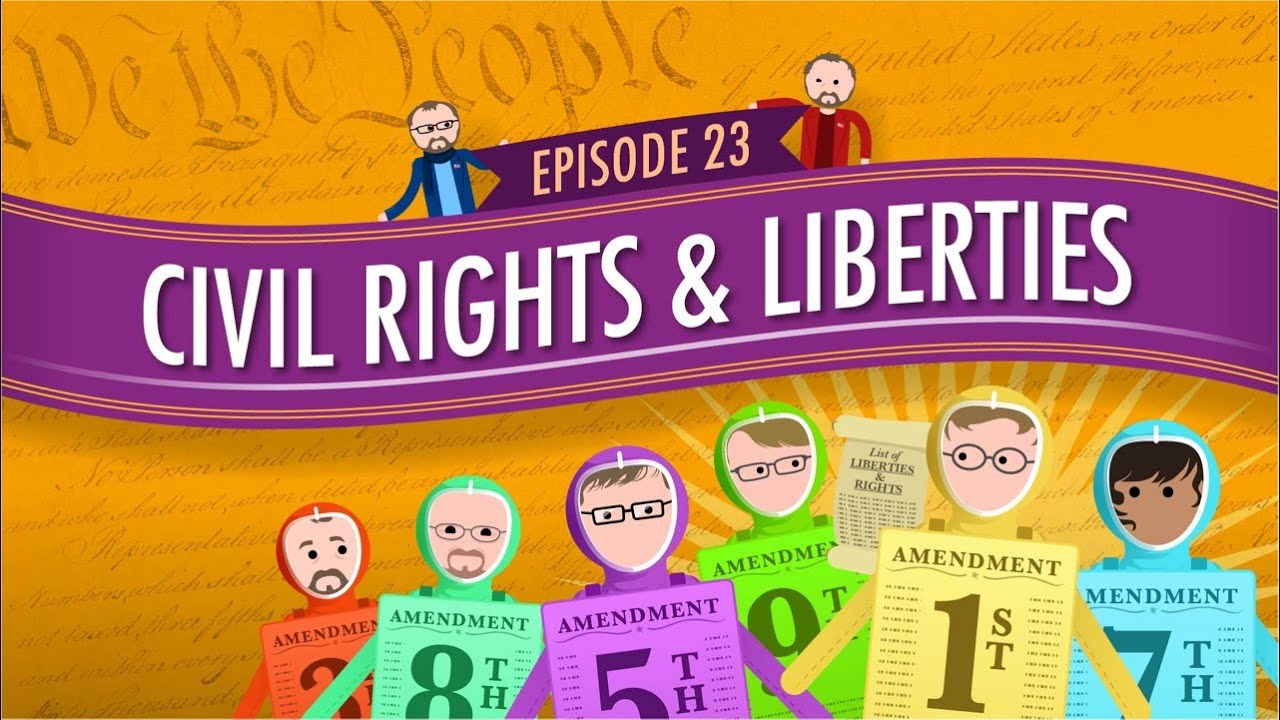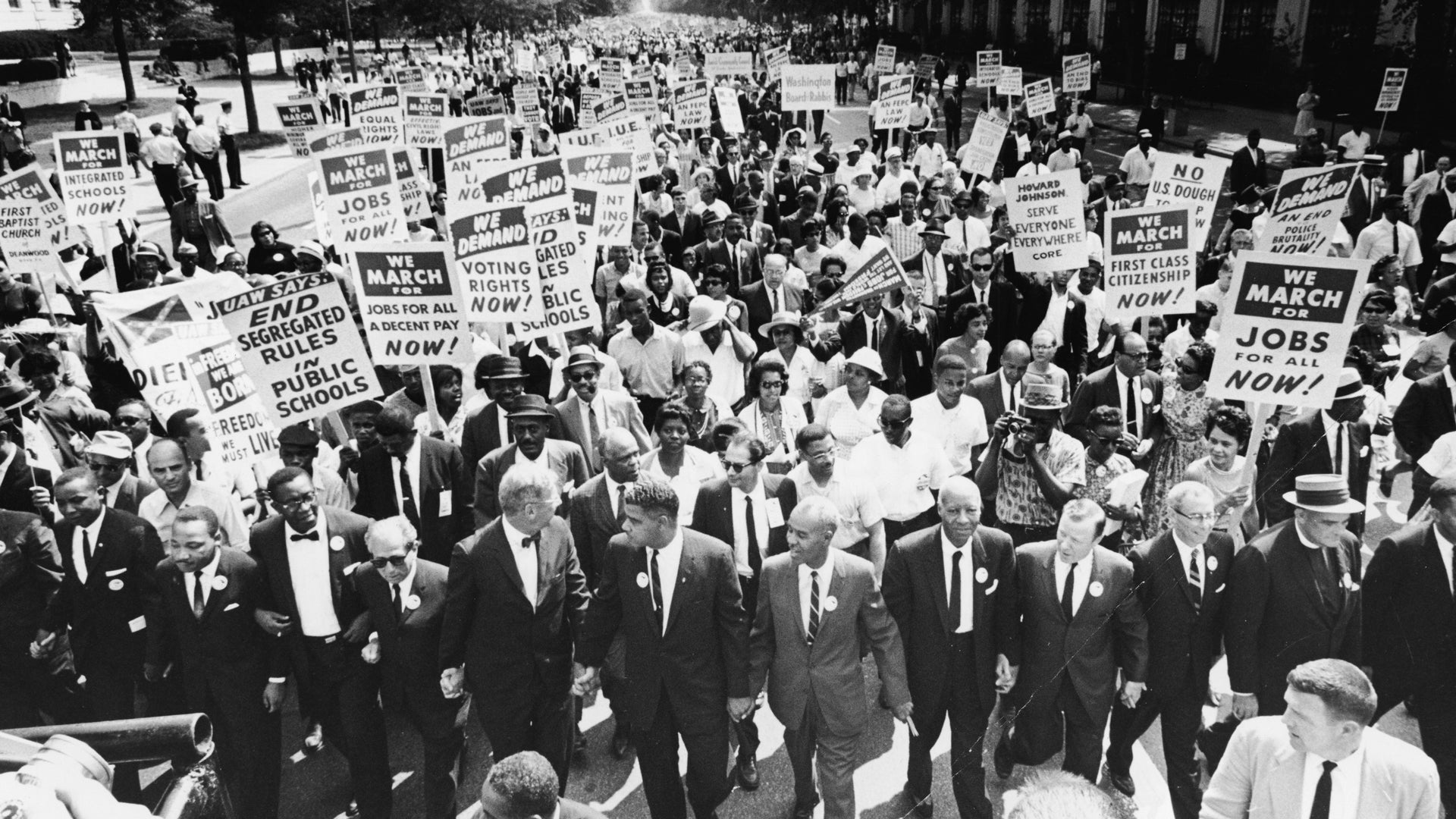What is Civil Rights Law?Civil rights law is a crucial aspect of legal protection that ensures individuals are afforded equal treatment under the law, free from discrimination and unfair practices.
What Is Civil Rights Law?
The law protects civil rights on a variety of levels, from the individual to the systemic, ensuring that everyone has the opportunity to participate fully in society without prejudice.
Whether you're interested in fighting against discrimination or defending the rights of those who have been wronged, pursuing a careerin civil rights law can be a rewarding and impactful choice.
What Are Civil Rights?
Civil rights refer to the basic rights and freedoms that are granted to all citizens by law, regardless of their race, gender, nationality, religion, or any other characteristic.
These rights are intended to ensure that individuals can exercise their fundamental liberties and participate fully in society.
Which Definition Best Defines A Civil Right?
A civil right is a fundamental liberty or privilege that is guaranteed to all individuals by law. This definition emphasizes the importance of civil rights in ensuring that everyone can exercise their basic freedoms and participate fully in society.
Civil rights are often enshrined in national and international law, and they are protected by legal and political institutions.
Historical Context
The concept of civil rights has its roots in the struggle for freedom and equality that has taken place throughout history. In the United States, for example, civil rights were first codified in the Constitution and the Bill of Rights.
However, it was not until the Civil War and the Reconstruction Era that civil rights for African Americans began to be recognized and protected by law.

Civil Rights & Liberties: Crash Course Government & Politics #23
How To Get Into Civil Rights Law
If you are interested in getting into civil rights law, there are several steps you can take:
Education And Training
- Earn a bachelor's degree in a relevant field, such as political science or pre-law.
- Attend law school and earn a Juris Doctor (J.D.) degree.
- Consider taking courses or pursuing a concentration in civil rights law.
Experience And Networking
- Seek out internships or clerkships with organizations that specialize in civil rights law.
- Volunteer with civil rights organizations or advocacy groups.
- Attend eventsand conferences to meet other professionals in the field and learn about job opportunities.
Job Opportunities
- Look for job openings with law firms, non-profit organizations, government agencies, and other organizations that focus on civil rights law.
- Consider starting your own practice or working as a consultant in the field.
What Are The 10 Civil Rights?
There are many civil rights that are recognized and protected by law. Here are ten examples:
1. The Right To Vote
This right ensures that every citizen has the opportunity to participate in the democratic process and have a say in how their government is run. This right is protected by national and international laws, and any attempt to infringe on this right is considered a violation of civil rights.
2. The Right To Free Speech And Expression
This right allows individuals to express themselves freely without fear of censorship or retaliation. This right is essential to the functioning of a democratic society, as it allows for the free exchange of ideas and opinions.
3. The Right To A Fair Trial
This right ensures that individuals accused of a crime are given a fair and impartial trial by a competent and neutral judge. This right is essential to ensuring that justice is served and that innocent people are not punished.
4. The Right To Equal Treatment Under The Law
This right ensures that all individuals are treated equally under the law, regardless of their race, ethnicity, gender, or any other characteristic. This right is essential to promoting fairness and justice in society.
5. The Right To Education
This right ensures that all individuals have access to education and the opportunity to learn and grow. This right is essential to promoting equal opportunities and ensuring that everyone has the chance to succeed.
6. The Right To Freedom Of Religion
This right allows individuals to practice their religion freely and without interference from the government or other individuals. This right is essential to promoting religious tolerance and freedom.
7. The Right To Privacy
This right ensures that individuals have the right to control their own personal information and to be free from unreasonable searches and seizures. This right is essential to protecting individual autonomy and preventing government overreach.
8. The Right To Freedom From Discrimination
This right ensures that individuals are protected from discrimination based on their race, ethnicity, gender, religion, or any other characteristic. This right is essential to promoting equality and preventing prejudice and bias.
9. The Right To Due Process Of Law
This right ensures that individuals are entitled to fair and impartial treatment by the legal system. This right is essential to preventing government abuse of power and protecting individual rights.
10. The Right To Peacefully Assemble And Protest
This right allows individuals to gather in groups and express their opinions and grievances without fear of repression or retaliation. This right is essential to promoting free expression and the right to dissent.
What Are The Pros And The Cons Of The Civil Rights Law?
Pros
- Protects individuals from discrimination and ensures equal treatment under the law.
- Promotes diversity and inclusivity in society.
- Helps to create a more just and fair society for all individuals.
Cons
- Some argue that civil rights laws can be overly broad and may infringe on individual liberties.
- The enforcement of civil rights laws can be difficult and may require significant resources.
- There may be disagreements about which rights should be considered civil rights and how they should be defined and protected.
People Also Ask
What Are Some Common Types Of Civil Rights Violations?
Civil rights violations can take many forms, including discrimination, harassment, denial of access to services, and police misconduct, to name a few. Some common examples include employment discrimination, racial profiling, and denial of voting rights.
How Can Individuals Report Civil Rights Violations?
Individuals can report civil rights violations to various government agencies such as the Department of Justice, Equal Employment Opportunity Commission, or state and local human rights commissions. They can also contact civil rights organizations or hire an attorney to file a lawsuit.
What Is The Role Of Civil Rights In The Workplace?
Civil rights in the workplace ensure that employees are treated fairly and free from discrimination based on their race, gender, religion, age, or disability status. This includes protection against harassment, unequal pay, and retaliation for reporting violations.
How Has Civil Rights Law Evolved Over Time In The United States?
Civil rights law in the United States has evolved significantly over time, starting with the Civil Rights Act of 1866, which aimed to protect the rights of newly freed slaves. Other landmark legislation includes the Civil Rights Act of 1964, the Voting Rights Act of 1965, and the Americans with Disabilities Act of 1990.
What Is The Relationship Between Civil Rights And Social Justice?
Civil rights and social justice are closely linked, as civil rights ensure that individuals are treated equally and fairly under the law, while social justice aims to address systemic inequalities and create a more just and equitable society for all. Civil rights are a critical tool in achieving social justice.
Conclusion
Knowing what is civil rights law plays a crucial role in ensuring that everyone is treated fairly and equally under the law. From the right to vote and freedom of speech to the right to a fair trial and freedom from discrimination, civil rights laws protect the fundamental rights of individuals in society.
Whether it's advocating for the rights of marginalized communities or fighting against injustice, civil rights law offers a unique opportunity to make a difference in the lives of others. By working to protect civil rights, we can help to create a more just and equitable world for all.
